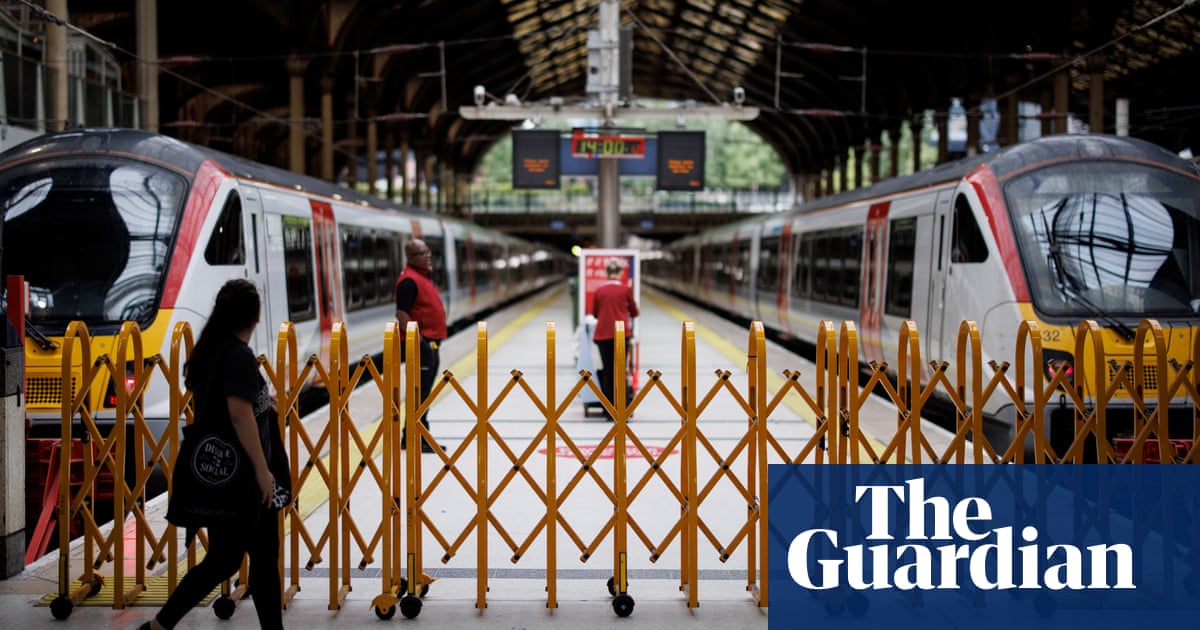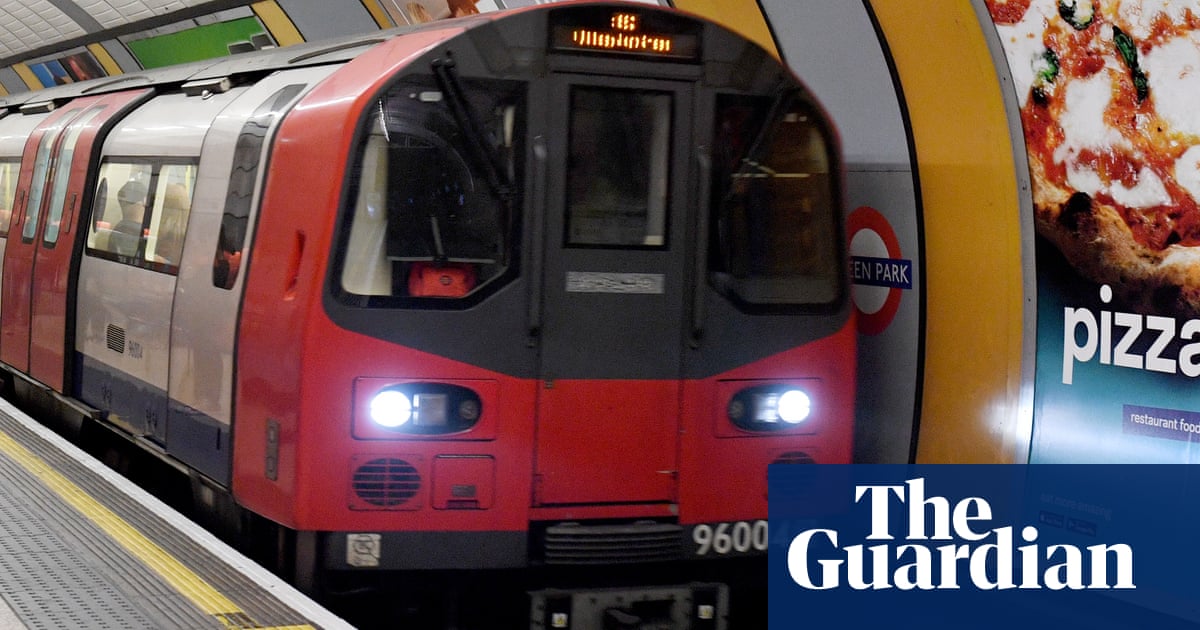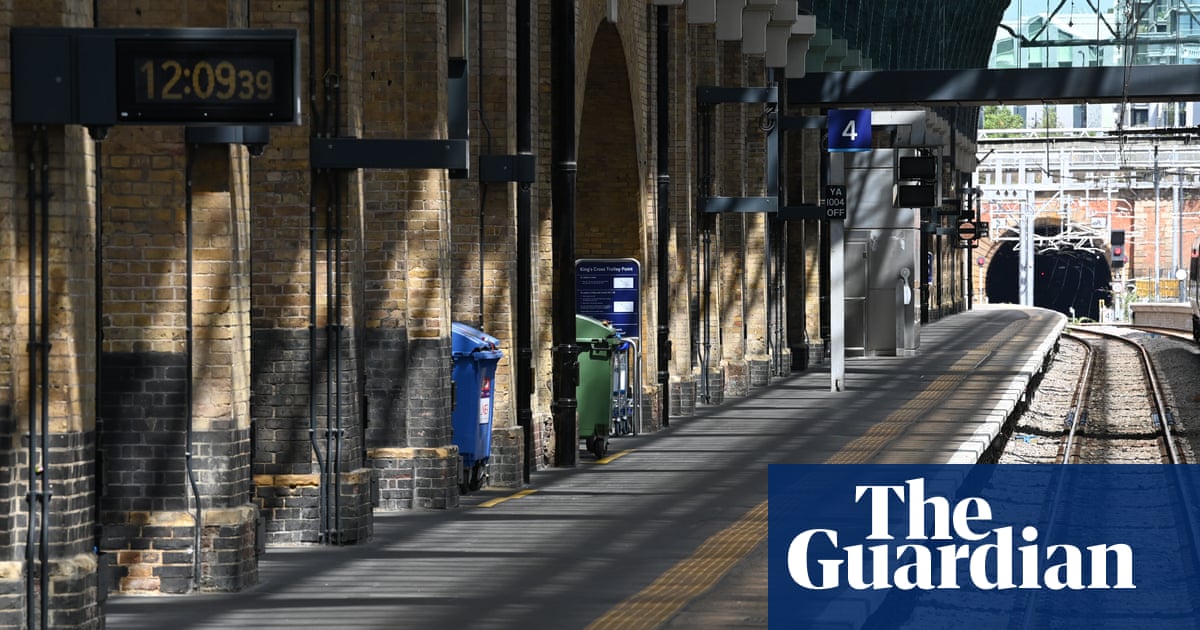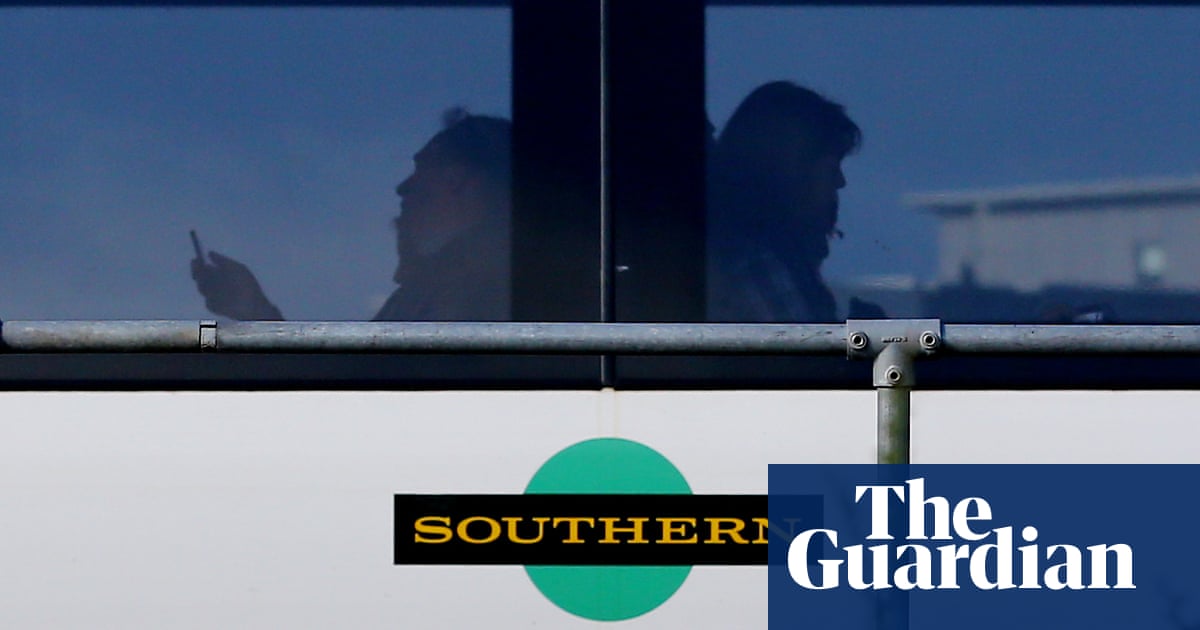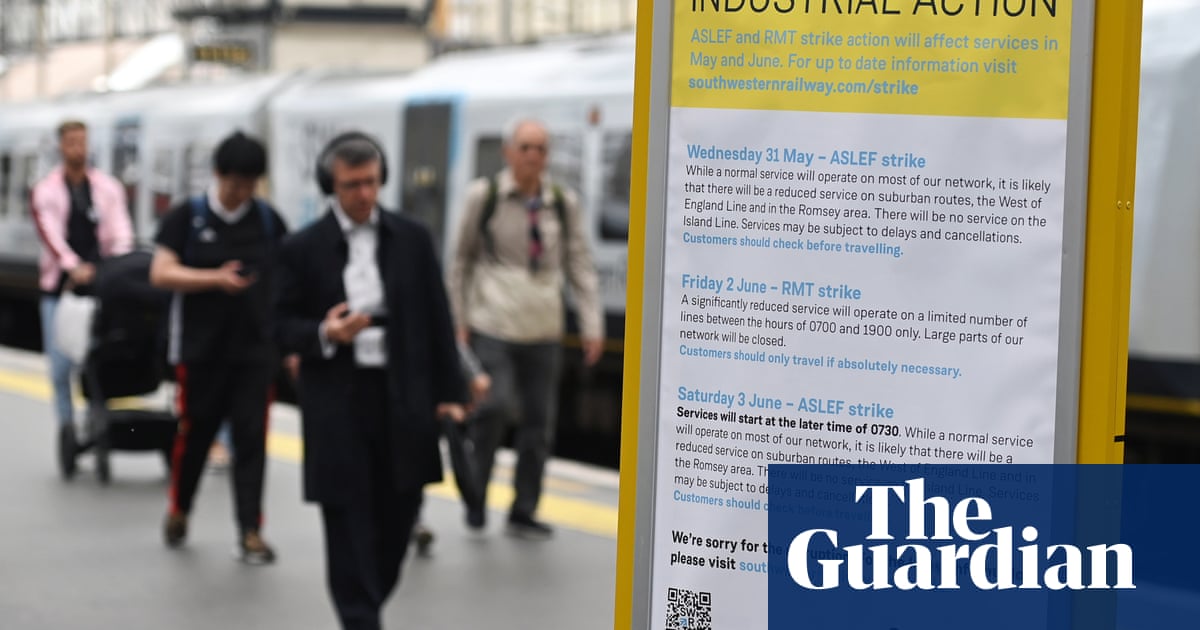
Rail services across England have again come to a halt as 12,000 train drivers went on strike for the second time this week amid a long-running dispute with operating companies over pay and conditions.
Members of the drivers’ union Aslef are walking out for 24 hours on the majority of lines in England and some cross-border routes into Scotland and Wales, leaving only 40% of services running.
Some networks are not running any trains at all, including Avanti West Coast, Chiltern Railways, CrossCountry, East Midlands Railway, Great Northern, Southern, Southeastern, Thameslink and Northern, while others will offer a reduced timetable.
Saturday’s strike caused disruption for those trying to travel to the weekend’s multiple big sporting and cultural events, including the FA Cup final between Manchester City and Manchester United at Wembley Stadium, the Epsom Derby and the final leg of Beyoncé’s Renaissance tour in London, as well as affecting families planning end-of-half-term trips.
One Manchester United fan who spent £300 to reach the match said the train strikes were a “nightmare”.
Marty Harris, 46, from Edinburgh, woke up at 4am on Saturday to take a flight to Birmingham, drove to Watford, then took a carshare and tube to Wembley, with his young son. He told the PA news agency: “I’m here now, so that’s the main thing. It’s been torture, absolute torture, especially when they’re on 55 grand a year. I think people watching will be tired because they’ve got up so early to be here.
“It’s been a nightmare. I don’t know how I’m getting back to Heathrow tonight with the trains off.”
The Aslef action comes the day after a 24-hour strike by 20,000 rail workers belonging to the National Union of Rail, Maritime and Transport Workers (RMT), which resulted in 50% of services being cancelled, again on most English networks and some cross-border routes. Friday was also marked by an overtime ban by Aslef members, who went on full strike on Wednesday.
The disputes between unions and the Rail Delivery Group (RDG), the body representing the operators, remain at a stalemate. Aslef rejected an offer of a 4% pay rise in April, which it called “derisory”, while the RMT received a fresh six-month strike mandate in May after pulling back from a deal with the operators that the union said barred it from striking as negotiations progressed.
Aslef’s general secretary, Mick Whelan, said his union regretted the disruption caused, but laid the blame for it “firmly at the feet of the 15 train companies … and the Tory government that stands behind them”. He said strikes could continue for years until a resolution is found.
He told Sky News: “We do not want to be on strike. But we are in this if it takes us four years, five years, whatever it is, to get a resolution to this, we will do what it takes to get to that resolution.
“We have gone four years without a pay rise, as have many other sectors and many other workers. But to stop now after four years, what will happen, we’ll not get a pay rise next year, the year after, the year after that.”
He said nobody had come to them to say they wanted to resolve the issue, adding that nobody from the government had spoken to them in more than six months.
During Friday’s disruption, RMT members protested on picket lines across the country. Speaking from one at London Euston, the union’s general secretary, Mick Lynch, argued that although no deal had yet been agreed, the action so far had been a success.
“We’ve pushed them back on all the stuff they wanted to do: they wanted to make thousands of our people redundant; they wanted to shut every booking office in Britain, restructure our engineering workers, cut the catering service,” he said.
“They haven’t been able to implement any of their plans … Other people seem to have been inspired to fight back and take action in their own industries, so it has been a success and it’s put trade unions back on the map in Britain.”
Aslef and the RMT have repeatedly accused the government of preventing the train operators from making an acceptable offer, which the Department for Transport (DfT) denies.
The RDG said: “The upcoming rail strikes called by the Aslef and RMT leadership will not only affect our passengers’ daily commute, but will also impact those travelling to and from the FA Cup final and other events across the country … It will also further burden our people who have already lost thousands of pounds at a time of financial strain.
“We understand the impact of these strikes on individuals and businesses alike, and we can only apologise for this unnecessary and damaging disruption.”
The DfT said: “Not content with impacting the hundreds of thousands of people who have looked forward to these events all year round, unions are also targeting their own members’ pockets by forcing them to miss out on pay every time they strike.
“The government has facilitated a fair and reasonable pay offer; now union leaders must do the right thing and put this to their members.”






